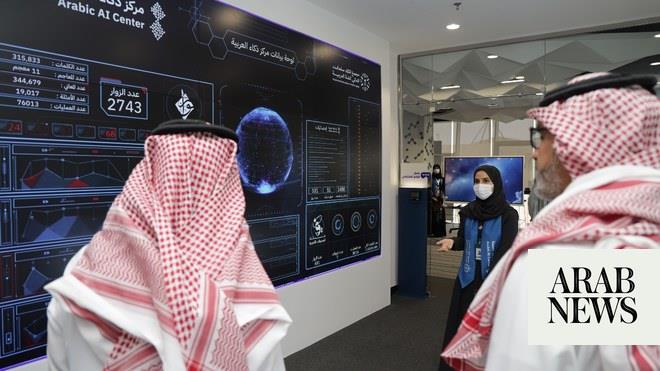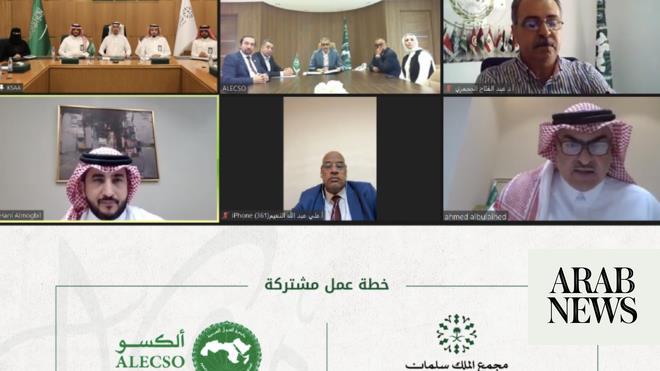
RIYADH: The first center for automated Arabic language processing, called the Arabic Intelligence Center, has opened in Riyadh, operated by the King Salman Global Academy for Arabic Language.
The center aims to enhance Arabic content in the fields of data and artificial intelligence and support scientific research and applications to help achieve the goals of the National Strategy for Data and Artificial Intelligence and Saudi Vision 2030, which seek to position Saudi Arabia as a global leader in this field.
Abdullah Al-Washmi, secretary-general of the academy, said the center’s success relies on its strategic goal of advancing Arabic language innovation, integrating AI technology for local and international use.
He told Arab News that the center brings together Arabic language specialists and technology experts. “Their shared interest in the Arabic language unites them,” he said.
To achieve its strategic goals, the center will enable AI-based innovations, support the development of applications, and certify qualified individuals with international standards to advance automated Arabic language processing knowledge, Al-Washmi said.
The center comprises five main laboratories: the Artificial Intelligence Laboratory, which focuses on developing technical research for the Arabic language and its processing; the Data Formatting Laboratory, which collects, tags, processes, and ensures the quality of Arabic data, whether written, audio, or visual; the Audio and Visual Laboratory, which records, processes, stores, and classifies audio and visual data; the Virtual Reality and Augmented Reality Laboratory, which creates Arabic software using virtual and augmented reality; and the Researchers’ Laboratory, which provides office space for researchers working in these fields to conduct their studies on Arabic computing.
Al-Washmi said: “The center ensures its strategic role through initiatives that support the Arabic language, aligning with the objectives of the Human Capacity Development Program, one of the programs under Saudi Vision 2030.”
He added that these initiatives focus on supporting computer applications that aim to stimulate automated Arabic language processing in both understanding and production, placing it in a uniquely competitive position among other languages.
The center’s services also include providing technical and linguistic consultations in the field of processing the Arabic language with AI, organizing meetings and training sessions, offering paid licenses to researchers, supporting studies with similar objectives, and contributing to data tagging for collaborative research.









